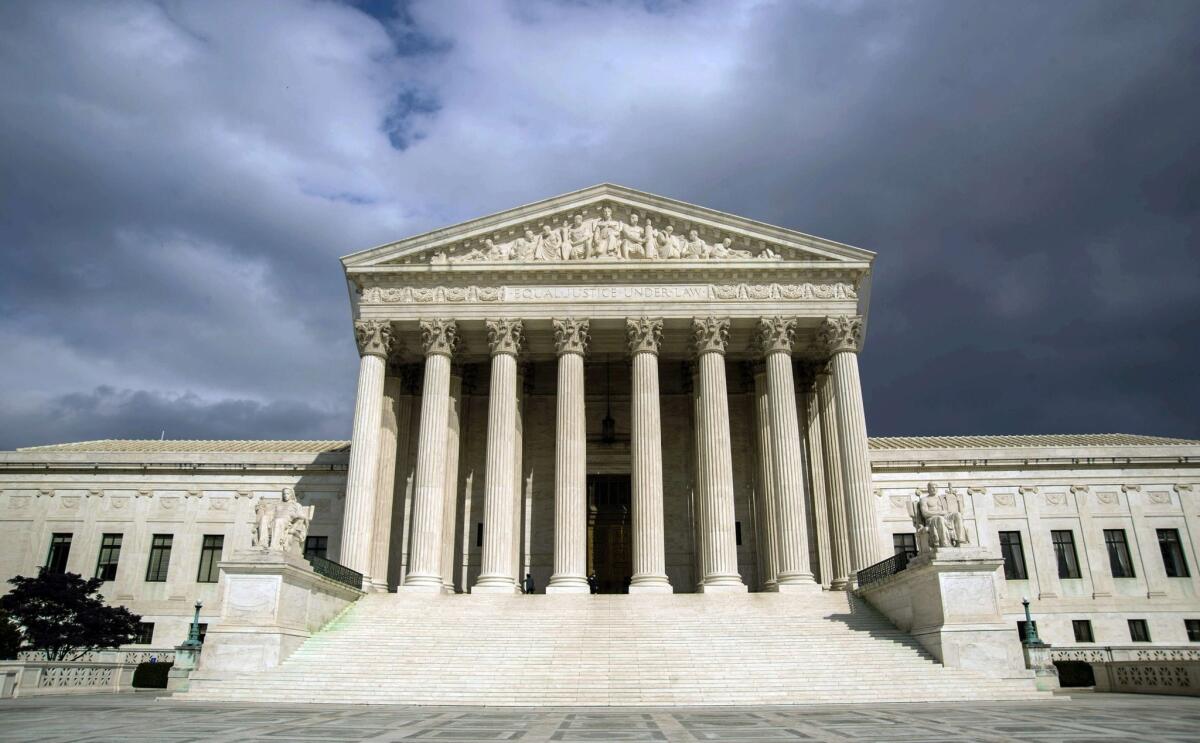Supreme Court, public employees, unions, 1st Amendment shield

The Supreme Court shielded public employees from being fired or disciplined if they testify in court against their superiors, ruling Thursday that the 1st Amendment protects citizens who are called upon to tell the truth.
The 9-0 decision bolsters the rights of tens of millions of government employees, but its reach is narrow. The ruling covered only those who are ordered to give “truthful testimony under oath.”
“Speech by citizens on matters of public concern lies at the heart of the 1st Amendment,” Justice Sonia Sotomayor wrote for the court. “This remains true when speech concerns information related to or learned through public employment.”
The unanimous ruling revived a free-speech lawsuit by a former Alabama community college official who said he lost his job for telling the truth.
Edward Lane had been appointed to direct the college’s program for underprivileged youth and soon learned that an influential state representative was drawing a paycheck but doing no work. Lane told Rep. Suzanne Schmitz she had to report for work or be fired. His superiors warned him to be cautious, because she could cut funds for the college system.
Undaunted, Lane fired Schmitz, and the FBI later launched a corruption probe. Lane was ordered to testify, and the state representative was convicted and sentenced to prison.
When funding for the college was cut, Lane was dismissed. He sued several college officials, alleging he was a victim of illegal retaliation.
But his 1st Amendment claim was tossed out by a federal judge and the U.S. 11th Circuit Court of Appeals in Atlanta.
Those judges relied on a Supreme Court decision from 2006 in a Los Angeles case that had sharply limited the free-speech rights of public employees.
In that earlier case, Garcetti vs. Ceballos, the court said whistle-blowers who learn about wrongdoing at their office or agency are not protected if they speak out in public. The case had arisen when Richard Ceballos, a deputy district attorney, raised questions about the validity of a police search warrant.
His complaints were ignored, and he was reprimanded and transferred after he testified for the defense in a pending case. Ceballos sued but lost his 1st Amendment case at the Supreme Court.
“When public employees make statements pursuant to their official duties,” they are not protected by the 1st Amendment, the court said in the 2006 opinion.
Citing those words, lower courts threw out Lane’s suit because his testimony arose from his “official duties” as director of the college program.
In Thursday’s opinion, the justices retreated somewhat from their previous position. Employees who are called to testify about what they learned at work are protected by the 1st Amendment, the justices said.
Testifying in court was “outside the scope of [Lane’s] ordinary job duties,” Sotomayor wrote. “That independent obligation,” she said, “sets it apart from speech made purely in the capacity of an employee.”
Denying free-speech protection “would place public employees who witness corruption in an impossible situation,” Sotomayor wrote in Lane vs. Franks, “torn between the obligation to testify truthfully and the desire to avoid retaliation and keep their jobs.”
Separately, however, the court dismissed the claim against the man who was president of the college in 2009, Steve Franks, saying that the law was not clear when Lane was fired.
The National Education Assn., which represents 3 million teachers and school officials, praised the decision, but said it did not go far enough.
The court “took an important step” by protecting public employees who testify, said NEA President Dennis Van Roekel, but the decision “was too narrow.”
“Public employees who have the courage to stand up and speak out to improve public services and prevent corruption should be protected from retaliation,” Van Roekel said.
Alabama Atty. Gen. Luther Strange had a greater reason to applaud the decision, because he won twice. In April, he argued at the high court in favor of reviving Lane’s free-speech claim and against holding Franks personally liable for the firing.
“I am pleased that the court agreed with the position we presented,” Strange said in a statement.
For more news of the Supreme Court, follow me on Twitter @DavidGSavage
More to Read
Sign up for Essential California
The most important California stories and recommendations in your inbox every morning.
You may occasionally receive promotional content from the Los Angeles Times.











